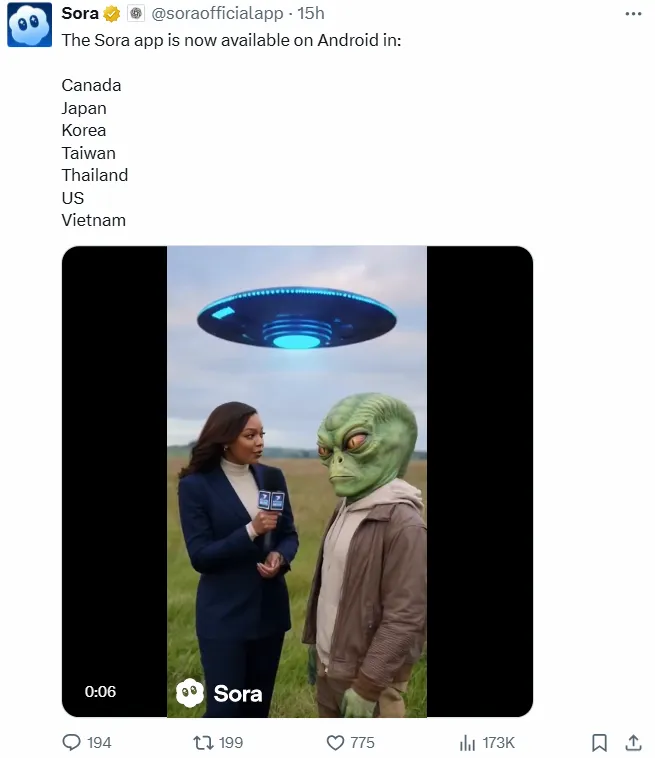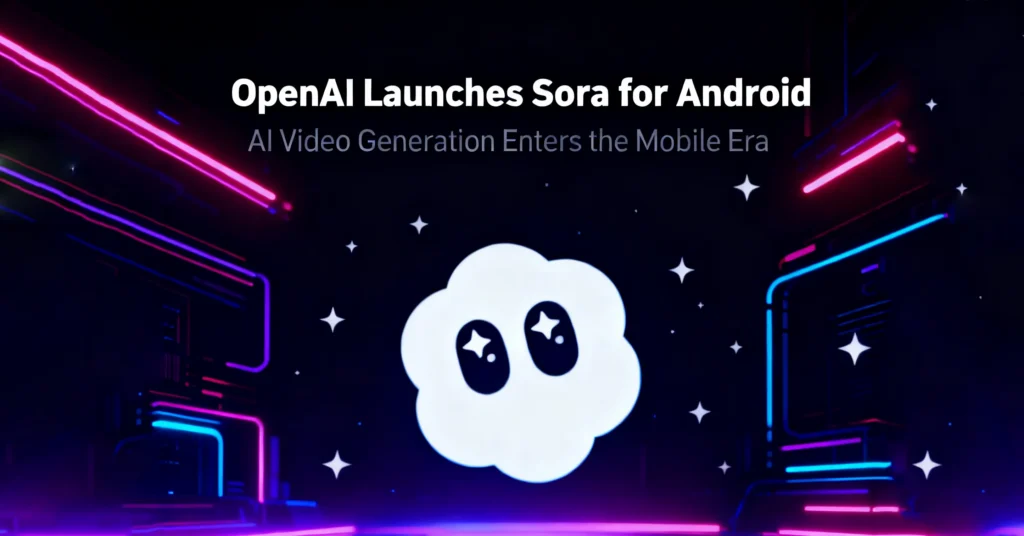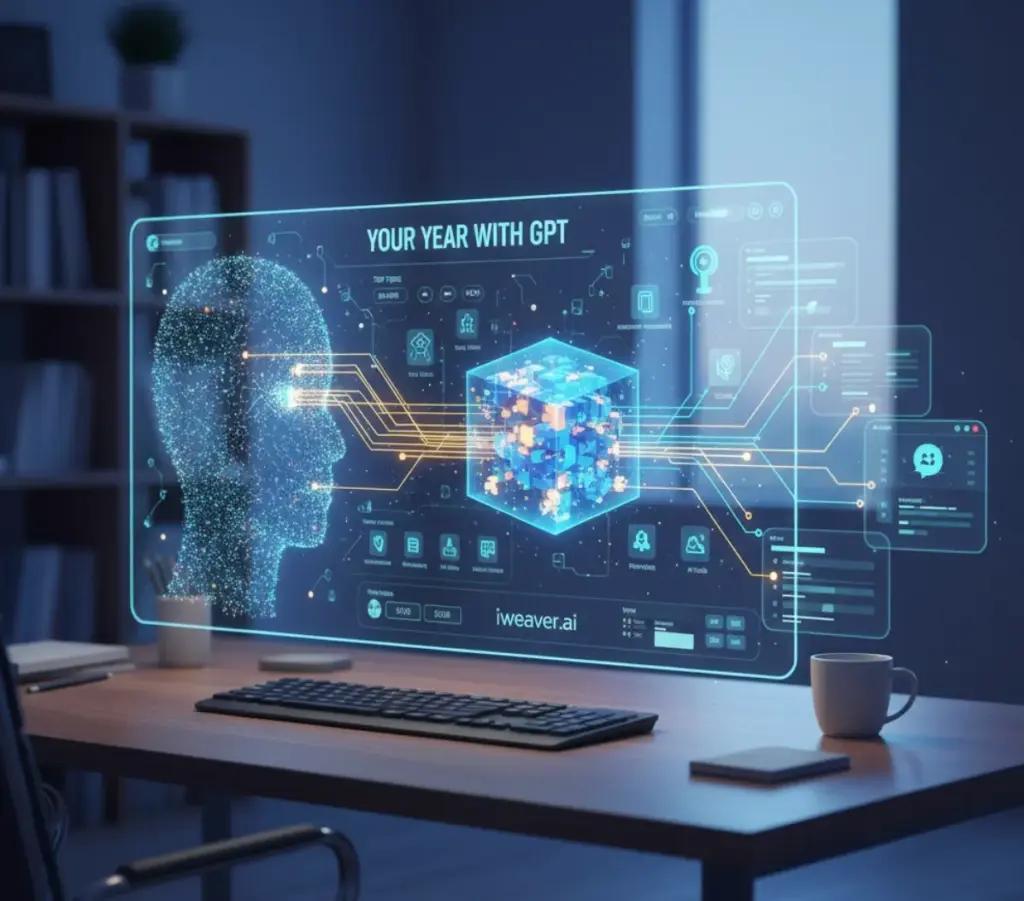OpenAI has officially launched the long-awaited Sora app for Android, marking a major step forward in bringing advanced AI video generation to mobile users worldwide.
Originally released for iOS in September 2025, Sora quickly surpassed one million downloads, drawing attention from creators and tech enthusiasts alike. Now, the Android version is available in the U.S., Canada, Japan, South Korea, Taiwan, Thailand, and Vietnam, with more regions to follow. Users can download it directly from the Google Play Store.

Key Features of Sora on Android
- Seamless Mobile Experience The Android app has been fully optimized for touch interaction, offering a clean, intuitive interface. Simply enter your prompt and tap “Generate” — within minutes, Sora produces high-quality video results with synchronized audio.
- Powerful Video Generation Built on OpenAI’s core Sora model, it can create coherent, realistic videos up to 60 seconds long and 1080p resolution, directly from detailed text descriptions.
- Expanded Global Availability Initially launched only in the U.S. and Canada, Sora is now rolling out to more Asian markets, with OpenAI confirming plans for broader international coverage.
- Feature Parity with Web Version The Android version includes all major web-based tools such as image-to-video generation and Character Cameos, ensuring mobile users enjoy the full Sora experience.
- Diverse Visual Styles Users can generate videos in cinematic, animated, realistic, or cartoon styles, and even remix community creations or join trending challenges.
How Sora for Android Is Changing Creation and Communication
The launch of Sora on Android signals OpenAI’s ambitions in the AI + short video landscape. By merging AI-powered video generation with social creativity, OpenAI is positioning Sora as a competitor to platforms like TikTok and Instagram, as well as emerging AI video apps.
- A Game-Changer for Content Creators: Influencers, vloggers, and social media managers can now create high-quality videos on the go — from live events to travel moments — dramatically improving creative efficiency.
- Revolutionizing Education and Training: Teachers and students can instantly visualize complex ideas as dynamic videos, making learning more interactive and engaging.
- Empowering Personal Expression: Anyone can become a “director” — transforming birthday greetings, travel stories, or dreamscapes into one-of-a-kind cinematic experiences.
How to Download and Install the Sora App on Android
If you’re in a supported region, getting started with Sora is simple:
- Open the Google Play Store on your Android device.
- Search for “OpenAI Sora” or “Sora AI Video Generator.”
- Look for the official OpenAI developer tag to confirm authenticity.
- Tap “Install” to begin downloading.
Note: The rollout is gradual, so some users might not see the app immediately. A valid OpenAI account is required to sign in and use Sora.
Boosting Your Sora Productivity with iWeaver
For creators who want to maximize efficiency and elevate their content quality, pairing Sora with iWeaver — an intelligent knowledge management and creative assistant — can be a powerful combination.
iWeaver allows users to upload Word, images, PPTs, and videos, automatically generating summaries. You can also use custom prompts to compare these materials, helping you extract key creative insights and learn from top-performing content.
Once you’ve selected your video topic, iWeaver’s AI script generator can instantly craft personalized video scripts, saving hours of manual writing.
iWeaver can refine your prompts to make them clearer and more effective for Sora, improving video accuracy, creative output, and reducing credit consumption during video generation.
The Challenges Behind the Innovation — Japan’s Copyright Concerns
While Sora’s Android release brings exciting opportunities, it also faces growing scrutiny over copyright and data usage.
Recently, major Japanese content companies — including Studio Ghibli, Bandai Namco, and Square Enix — filed formal complaints through the Content Overseas Distribution Association (CODA), claiming that Sora may have used copyrighted works in its training data without authorization.
Japan’s copyright law emphasizes a “prior authorization” approach rather than an opt-out system, meaning AI models must secure explicit permission before using protected content. This dispute highlights the ongoing global debate around AI training, fair use, and cultural asset protection.
The release of Sora for Android marks a turning point — not just in AI video generation, but in the relationship between AI creativity and copyright ethics.
For OpenAI, future progress will depend on how effectively it balances community innovation, copyright compliance, and creative empowerment.
Only by building transparent frameworks and protecting creators’ rights can OpenAI ensure that Sora becomes a sustainable platform — one that empowers human creativity rather than replaces it.




